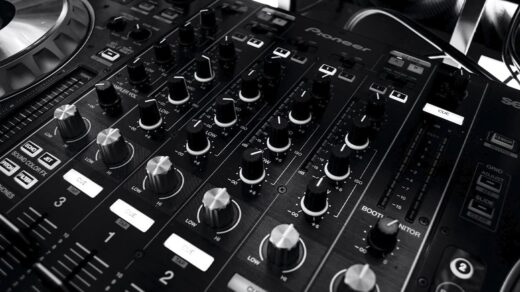When talking about classical music, keep in mind that this definition can be used in different contexts.
What is classical music?
In most cases, when we use the definition “classical”, we mean music that has stood the test of time and which even in modern society has its own audience. We refer to classical music not only as masterpieces of musical art, but also as entertainment genres of the past, such as waltzes and operettas. A narrower understanding of classical music, which is perceived in academic circles of musicians, music historians, and art historians, states that classical music is academic music, which has a continuity of generations and a unity of genre diversity, covering the late 17th century and early 19th century.
In terms of history, classical music is defined as music from the second half of the 18th century to the beginning of the 19th century. It is this period is traditionally correlated with classicism. Since the concept of classicism in the fine arts and literature is to follow the ancient tradition, it is not too broadly applicable to music in this context, as the musical culture of ancient Rome and ancient Greece has not practically reached us.
What is classical music?
In colloquial speech and journalism, the concept of classical music refers to the so-called academic music, the successor of the musical genre formed in Europe in the seventeenth and nineteenth centuries. It can be said that the modern composers-academists of the twentieth century, belonging to the avant-garde trends, are in conflict with the musical tradition of the past. Also throughout the 20th century there were repeated attempts to cross academic music with various other traditions, such as symphojazz, a kind of hybrid of classical and jazz performed by a symphony orchestra.
There is a right to life definition of the term “classical music,” according to which such may be considered those works that, after a certain period of time have not been lost in the annals of history and the shelves of art, and remained the heritage of mankind. Thus, music that has survived at least one generation can be called classical, as a model of skillful creation of quality music for all time.
The word “classical” comes from the Latin classicus, which means exemplary. The Encyclopedia of Music provides definitions of the term “classical music” as follows:
The exemplary musical works of prominent composers of the past that have stood the test of time;
Musical works written at a specific historical period in art (from Baroque to Modernism);
Musical works written according to certain rules and canons with the necessary proportions and intended to be performed by a symphony orchestra, ensemble or soloists.
Classical music varies in genre: symphonies, suites, sonatas, etudes, nocturnes, fantasies, fugues, operas, ballets, and sacred music. The main instruments for classical music are strings, keyboards, wind and percussion instruments: violin, cello, piano, flute, oboe, clarinet, trumpet, timpani, cymbals, drum and, of course, the organ.
Organ
This instrument can be considered the ancestor of classical music, because it dates back to the Renaissance period, i.e. the 16th century! And its golden age is the 17th century, the era of the Baroque. It was then that such musical genres as the sonata and opera emerged, which are still relevant today.
Johann Sebastian Bach
The greatest genius in music history, Johann Sebastian Bach, created during the Baroque period, and it was he who opened up new and limitless possibilities for the creation of musical works. The music of that era was characterized by ornate forms, complexity, opulence and emotional intensity. Bach’s fugues, Handel’s oratorios and Vivaldi’s violin concertos The Seasons were born.
Ludwig van Beethoven
At the end of the 18th century another star of classical music rose in the musical firmament – Ludwig van Beethoven. He began to write music in the classical style inherited from Mozart. But real talent always brings something new with it, so it is said that Beethoven literally “split” the classical style with his music, becoming the founder of a new era – the era of Romanticism. Classical music of this era is more ardent, deep, emotionally expressive and individual. It is directed deep into the human soul, showing the depth and richness of the inner world. Such outstanding composers as Chopin, Strauss, Liszt, Tchaikovsky, and many others created during this period.
But at all times, in spite of the differences in styles and genres, classical music has been harmonious and highly spiritual. It was born in the soul of genius. With their works, artists wanted to reach into our hearts, to share their feelings and experiences with us, to show the subtlest shades and tones of human feelings and relationships.










